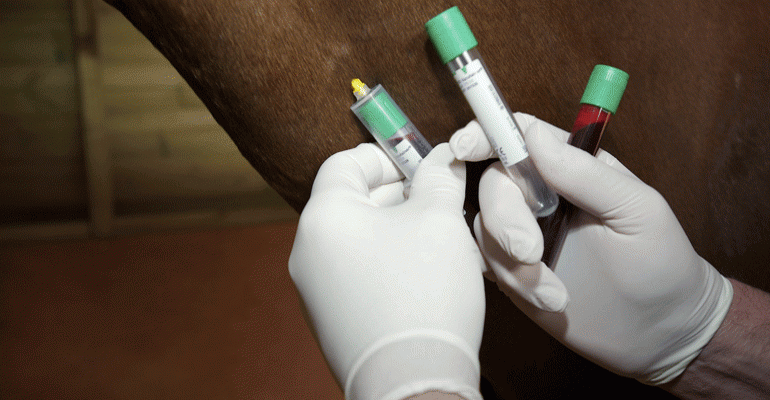The FEI has published an update concerning the EHV1-outbreak in mainland Europe. In it it reports the situation is controlled as good as possible, certainly as some horses left the contaminated showgrounds to early.
Oliva (ESP)
The Organising Committee (OC) in Oliva has set up a strong organisation and continues to tightly collaborate with the authorities, the National Federation and FEI. The Spring MET III Tour (Spring MET III, 7-26 March) has now been cancelled and the OC has put in place meetings in order to keep all athletes informed on the most recent developments.
The venue is operating under the auspices of the Regional Veterinary Authority which in turn is monitored by the Federal Veterinary Authority, MAPA. In addition, an FEI Treating Veterinarian has been appointed as responsible for the venue, he is leading the work onsite and reporting back to the Regional Veterinary Authority.
To date, there are nine horses at the University Equine Hospital in Valencia (CEU) for close monitoring, eight of which have displayed neurological signs. As a preventive measure and to ensure enough treating space, the FEI has ordered 12 temporary boxes to be set up at the hospital grounds in case more horses are brought in.
At the venue in Oliva, there are currently 103 horses remaining, which have been divided into different groups depending on their health status. The temperature of all horses at the venue is taken two to three times daily, and in the latest report from 1 March, no horse presented fever or any clinical signs.
MAPA, supported by FEI Veterinary Department, have decided to extend the initial safety measures in order to avoid a further spread of virus from the venue. In order to leave the venue, horses now have to present a first negative sample, followed by a second sample which will be taken 14 days later and a third on day 15. All three samples need to be negative in order for a horse to be released.
In order to then be “un-blocked” in the FEI Database and return to competition, the horses have to fulfil certain health requirements. The mandatory biosecurity measures provide two options – either 21 days isolation with a nasopharyngeal sample taken earliest on Day 21 or alternatively a minimum isolation of 14 days with a first nasopharyngeal sample taken earliest on Day 7 and a second sample taken another seven days later at the earliest. All samples must be analysed by PCR and return negative. The measures also include taking twice-daily rectal temperatures.
Release from isolation can only take place on the advice of a veterinarian and in order to be “un-blocked” and have access to FEI Events, the horses will need to comply with all the return to competition protocols and have the restriction lifted by the FEI Veterinary Department.
Lier (BEL)
The Belgian National Head Veterinarian has inspected the cleaning, disinfection and sealing of the venue and given the green light to reopen the venue for competitions.
As a reminder, the affected horse and each of the 25 in-contact horses from the event are prevented from attending any FEI events until they have fulfilled certain health requirements which are imposed in order to minimise any potential transmission of the virus, to both their own horses and the wider horse population.
Current status of the spread of EHV-1
Seven horses departed from Oliva prior to the first confirmed EHV-1 case, one travelled to Valencia (ESP), four to Vejer de la Frontera (ESP) and two to Doha (QAT). They were immediately isolated on request of the FEI and are currently applying the FEI Return to Competition protocols while in isolation. To date, none of the horses have been reported to present fever or clinical signs.
Six horses returning from Oliva to Limburg (NED) have tested positive for EHV-1 and have been placed in quarantine where they are being closely monitored.
Unrelated to Oliva, in Vilamoura (POR), two horses with fever were placed in isolation, however their test results for EHV-1 were negative.

